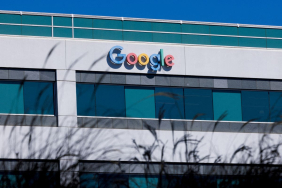A federal judge ruled on Thursday that Google has unlawfully established a monopoly in two sectors of online advertising technology, marking a significant setback for the tech giant and potentially facilitating efforts by US antitrust authorities to disband some of its advertising services.
US District Judge Leonie Brinkema, based in Alexandria, Virginia, determined that Google has “willfully acquired and maintained monopoly power” in the realms of publisher ad servers and the ad exchange market that facilitates transactions between buyers and sellers.
The ruling paves the way for subsequent hearings aimed at determining the necessary steps Google must take to foster competition in these markets, potentially involving the divestiture of parts of its business in a forthcoming trial yet to be scheduled. This judgment aligns with earlier ones that also concluded that Google holds an illegal monopoly, particularly in a separate case related to online search.
Publisher ad servers provide platforms for websites to manage and store their digital advertising inventory. Together with ad exchanges, this technology enables news publishers and online content creators to generate revenue through advertising, which Judge Brinkema described as the “lifeblood” of the internet.
Brinkema noted, “This exclusionary conduct not only hindered competitors but also substantially harmed Google’s publisher customers, the competitive process, and ultimately, the consumers accessing information on the open web.”
However, the judge indicated that antitrust authorities did not adequately demonstrate that Google maintained a monopoly in the market for advertiser ad networks.
US Attorney General Pamela Bondi called the ruling “a landmark victory” in the ongoing struggle against Google’s monopolization of digital spaces.
“This Department of Justice will remain committed to taking decisive legal action to shield the American populace from intrusions on free speech and free markets by technology corporations,” she added.
Lee-Anne Mulholland, Google’s vice president of regulatory affairs, announced plans to appeal the ruling, stating that the company successfully defended part of its case. “We disagree with the decision regarding our publisher tools. Publishers have numerous options, and they often select Google because our ad tech solutions are straightforward, cost-effective, and efficient,” she asserted.
Following the announcement, Google’s stock declined by 1.4 percent. Market analysts suggested that any financial repercussions from the loss would likely be minimal for the company best known for its search engine capabilities.
The Department of Justice has suggested that Google may be required to divest at least its Google Ad Manager, which encompasses the company’s publisher ad server and ad exchange.
Previously, Google had considered selling its ad exchange to satisfy European antitrust regulators, according to reports from Reuters in September.
US Senator Amy Klobuchar of Minnesota, who has led antitrust efforts, viewed the ruling as a substantial triumph for consumers, small enterprises, and content creators, emphasizing that it would promote greater innovation and reduced costs in digital markets.
Inflection Point
Michael Ashley Schulman, chief investment officer at Running Point Capital, characterized the ruling as a “major inflection point” for both Google and the broader technology sector, highlighting the increasing willingness of US courts to endorse “aggressive structural remedies” in antitrust lawsuits.
“This could lead to heightened regulatory risk premiums for major tech stocks, particularly those like Amazon and Meta that operate under similarly integrated ecosystems,” he noted.
Meta Platforms is currently engaged in its own antitrust litigation launched by the US Federal Trade Commission, which accuses the parent company of Facebook, WhatsApp, and Instagram of holding a monopoly in personal social networks. Additionally, the FTC has alleged that Amazon.com unlawfully dominates the online retail space, while the DOJ’s lawsuit against Apple claims the company holds a monopoly in the smartphone market.
These legal actions have been pursued across both Republican and Democratic administrations, illustrating the bipartisan commitment to antitrust enforcement.
Google now faces potential court orders from two US judicial bodies demanding that it divest certain assets or modify its business operations. A related trial in Washington is set to take place next week concerning the DOJ’s request for Google to sell its Chrome browser and implement other measures to mitigate its dominance in online search.
During a three-week trial last year focusing on Google’s advertising operations, prosecutors from the DOJ and a coalition of states asserted that Google employed traditional tactics for building a monopoly, including eliminating competitors through acquisitions, binding customers to its services, and controlling transaction processes within the online ad market.
In its defense, Google claimed that the case focused on historical practices while it was still enhancing its tools for compatibility with rival products, dismissing concerns about competition from companies like Amazon and Comcast amid shifts in digital ad spending toward mobile applications and streaming services.
In her ruling on Thursday, Brinkema countered many of Google’s arguments concerning acquisitions. She concluded that Google had unlawfully linked the use of its exchange product to its ad server, thus enacting anticompetitive policies detrimental to its publisher clients.
© Thomson Reuters 2025
(This story has not been edited by NDTV staff and is auto-generated from a syndicated feed.)






